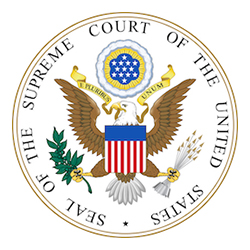
Police Officer (Dignitary Protection)
Supreme Court of the United States See More Job Openings by This Employer- Full Time
- $81,552 - $139,419/year
- Washington, DC
February 1, 2025
Job Description
To apply, please proceed to our Police Officer (Lateral/Certified) announcement and click the Apply button. When prompted, indicate that you are applying for the Dignitary Protection position. $81,552 - $139,419: Salary range for applicants currently employed as a federal, state, or municipal law enforcement officer with at least one year of full duty service after training. Starting salary is determined upon validation of the current annual base salary with locality pay of the selectee.
Duties The Supreme Court of the United States Police is a Federal law enforcement agency that derives its authority from United States Code 40 U.S.C. 6121. The Supreme Court Police enforce Federal and District of Columbia laws and regulations, as well as enforce regulations governing the Supreme Court Building and grounds prescribed by the Marshal and approved by the Chief Justice of the United States. The department's mission is to ensure the integrity of the Constitutional Mission of the Supreme Court of the United States by protecting the Supreme Court, the Justices, employees, guests, and visitors. The Supreme Court Police are responsible for providing a full range of police services, to include: Protection of the Supreme Court Building and grounds, and persons and property therein; Dignitary Protection for the Supreme Court Justices, both domestically and internationally; Maintain suitable order and decorum within the Supreme Court Building and grounds, to include policing demonstrations and large-scale events; Provide Courtroom security; Provide residential security for the protectees of the Supreme Court of the United States; Prepare numerous reports to include incident, found property, accident, and arrest reports, as well as testify in court. The Supreme Court Police Dignitary Protection Unit is responsible for providing a full range of protective security services, to include: Utilize expert knowledge of protective operations, countermeasures, protective intelligence, and general law enforcement duties to safeguard protectees of the Supreme Court of the United States; Provide Courtroom security; Coordinate with internal and external stakeholders to build operational plans; Travel domestically and internationally, as required; Conduct threat research and assessment support; Conduct additional responsibilities as assigned in support of the Dignitary Protection Unit and police operations, as primary duties permit. Salary- $81,552 - $139,419/year